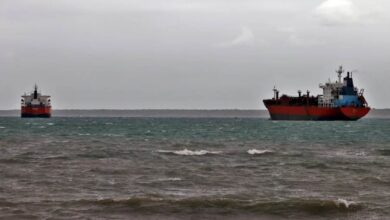Yasuní Case: Bolivia Wants To Learn From Ecuador Against Oil And Mining Projects
Environmentalists from Bolivia and Ecuador have joined forces against oil and mining projects. Bolivia wants to learn from Ecuador's experience with the Yasuní case. Here we explain .

Photo: EFE/Luis Gandarillas
EFE
Listen to this article
Leer en español: Caso Yasuní: Bolivia quiere aprender de Ecuador en contra de los proyectos petroleros y mineros
Environmental and indigenous organizations from Bolivia and Ecuador met this Friday in La Paz to "join" efforts in defense of the environment and the protection of indigenous peoples from the effects of oil and mining projects.
At the "Solidarity without Borders" event, representatives of the Bolivian natural reserves of Tariquía and Madidi along with defenders of the Ecuadorian Yasuní National Park expressed their intention to "make visible" their struggles.
"We want to make visible the struggles in Bolivia (and in Ecuador) for indigenous territories, protected areas and for the natural heritage that has been overwhelmed and looted," the head of Human Rights Advocacy at the private Bolivia's Documentation and Information Center (CEDIB) told EFE.
Ecuador: The Yasuní case
In Ecuador last August a referendum was held in which the yes vote was won with 58.9% in favor of the cessation of oil exploitation in the Yasuní National Park, one of the areas with the greatest biodiversity in the world.
"Yasuní means 'sacred land' (…) there are sacred lands in all the countries of Latin America and the world and it is necessary to protect these lands," the president of the NGO Acción Ecológica, Ecuadorian Alexandra Almeida, told EFE.
Bolivia: with a view to learning from Ecuador
The activist mentioned that in Bolivia there are many people who "are defending their sacred lands" and who consider that a country cannot depend on a resource "that, when released, destroys nature."
There is an expectation that "we can adapt the Yasuní experience to our environment, in Tarija, to be able to save our protected area or perhaps (apply it) at the national level," the farmer representative of Tariquía, Francisco Romero, told EFE.
Tariquía, located in the southern department of Tarija, near the border with Argentina, was declared a national flora and fauna reserve in 1989.
Since 2016, several of the local communities have opposed hydrocarbon exploitation by the state-owned Yacimientos Petrolófilos Fiscales Bolivianos (YPFB) and the Brazilian company Petrobras because they have identified contamination in the waters and land.
Read also: Evo Morales Seeks To Regain Power In The Year Of The Bicentennial With His Fifth Candidacy
Likewise, the leader Domingo Ocampo explained the vulnerable situation of the Madidi National Park, in the department of La Paz, considered one of the areas with the greatest biodiversity in the world.
Ocampo referred to the "threat" of mining since the gold miners not only settled on the banks of the rivers of the Bolivian Amazon but also "enter larger spaces" in the forests authorized by the Government and without the affected towns are consulted.
Gold mining in the rivers of the Amazon and the use of mercury has generated a wide discussion in Bolivia regarding the effects that its toxic waste causes on the environment and human health, with neurological damage and other conditions.
"Both Ecuador and Bolivia recognize the rights of Mother Earth in their regulations (…) but these regulations often remain only in theory," was noted in the meeting declaration.





